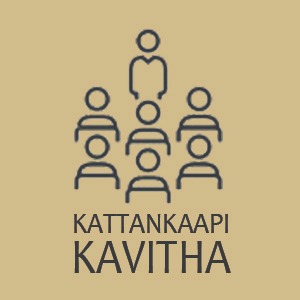Gifts and Hospitality Policy
| Gifts and Hospitality Policy |
| Last review date | 18 November 2019 |
| Next review date | 18 November 2020 |
| Last updated by | Sreejith Sreedharan |
Introduction
This Policy applies to the Malayalee Association of the UK (“MAUK”).
It must be adhered to by all individuals who direct, support or work, directly or indirectly, for MAUK including:
- Directors;
- Volunteers;
- Staff;
- Contractors/Consultants;
- Any person acting on behalf of MAUK.
Why is this policy necessary?
This Policy is necessary to:
- Safeguard MAUK’s reputation;
- Protect the reputation of those who work so hard to help MAUK in its fundraising activities and/or delivery of its charitable objectives;
- Avoid conflicts of interest or the appearance of conflicts of interest;
- Provide specific guidance to support compliance with MAUK’s Anti-fraud, Bribery and Corruption Policy and applicable laws;
- Protect the directors, volunteers and staff against the accusation that such gifts or hospitality are intended to influence the decisions they take in administering MAUK’s affairs.
- Help the Chair, Secretary and directors to discharge their legal duty to act only in the best independent interests of MAUK.
Policy
- MAUK will investigate thoroughly any actual or suspected breach of this Policy, or the spirit of this Policy. Individuals found to have accepted a gift in breach of the Policy may be subject to disciplinary and/or other action.
Gifts
- Except as set out below, MAUK does not permit the acceptance of a gift(s) by any person or persons covered by this Policy from any individual, company, organisation or body, including, without limitation:
- MAUK’s school students (or persons connected with such young person’s e.g. parents and guardians);
- Current or potential MAUK suppliers and contractors;
- Partner organisations;
- Donors;
- Governmental, national or international organisations;
- Other charities, businesses or supporters of MAUK.
- This Policy also applies to any gifts offered or given to people connected with those covered by this Policy (e.g. friends and family).
- Gifts should never be solicited and, unless covered by the exception below, should be politely declined or returned, citing this Policy as the reason for doing so. In the rare circumstance where it is not possible to return a gift, the recipient should pay the market price or donate the gift to MAUK directly. Please see below as to the reporting requirements in the event of an offer of a gift or other inducement.
- Offers of ‘Staff’ discounts must be approved by the Chair or Secretary on a case by case basis and the discount should be of a level widely available and not be restricted to a small group of individuals.
- MAUK will apply the same policy with regard to the offer of gifts to individuals connected to the organisation or wishes to have, dealings.
Hospitality
- As a general principle, MAUK discourages those covered by this Policy from accepting hospitality from any individual or organisation with which MAUK has, or potentially has, dealings. It is, however, recognised, that there can be occasions when it is in the best interest of MAUK for such hospitality to be accepted: By example, hospitality in the form of reasonable refreshments, working lunches etc. can be accepted and does not have to be recorded in the Gifts and Hospitality Register. For any hospitality which goes further, the Chair is to liaise with the Secretary and CFO so that a decision can be made as to whether the hospitality should be accepted. A record of any such hospitality offered, regardless of whether it is declined or accepted, will be made in the Gifts and Hospitality Register.
Exceptions to the Policy above
- The test to be applied in all potential exception situations for the offer of gifts, hospitality or inducements is whether a fair-minded member of the public, knowing the facts of the matter, would see anything improper or suspicious in the receipt of the offer and/or hospitality.
- It is accepted that in some circumstances it may be appropriate for directors, volunteers and staff receive modest gifts (“modest gifts”), for example, the receipt of items such as a box of chocolates from a young person (or pens from organisations with which MAUK conducts business) where this can reasonably be regarded as being in MAUK’s best interests. However, it is a fundamental principle that any exception to the above policy should be justifiable, open and would not be construed by an impartial observer as influencing a business decision. If in doubt, the recipient must not accept any such gift(s) without the
approval of the Chair or Secretary, (or if the gift is to be made to the Chair, consult the Secretary and vice versa) / (or if the gift is to the Chair or Secretary consult the opposite person).
- Apart from any modest gifts (such as pens, diaries, a bottle of wine or some flowers to a value of less than £25), unsolicited gifts with a value of under £50 can be accepted, with the approval of the Chair or Secretary (or if the gift is to the Chair or Secretary consult the opposite person),provided that the gift is not given or accepted with an expectation that there is any obligation owed as a result of the gift. Any cash gift must be donated by the recipient to MAUK. For any non-cash gift, the market price of the gift should be paid to MAUK.
- Any gift offered which is known to exceed the value of £50, or reasonably expected to exceed this value, should kindly be declined.
- The relevant details in respect of all gifts (including those which are declined or returned) are to be entered in the Gifts and Hospitality Register.
Register of Gifts and Hospitality
- The CEO will hold and maintain the Gifts and Hospitality Register. All staff, volunteers and Trustees must, if they accept or decline any gift or hospitality, inform the CEO by email within seven days of the offer.
- The information contained within the Gifts and Hospitality Register may also be reported to MAUK’s auditors and any appropriate committee or Board meetings.
Process of Policy Review
- MAUK’s Gifts and Hospitality Policy is reviewed annually.
- The purpose of the review is to determine:
- if the policy is still necessary and accurate;
- if the policy should be combined with another policy or if it should be withdrawn;
- if the policy is up to date with current laws and regulations;
- if changes are required to improve the effectiveness or clarity of the policy.



















